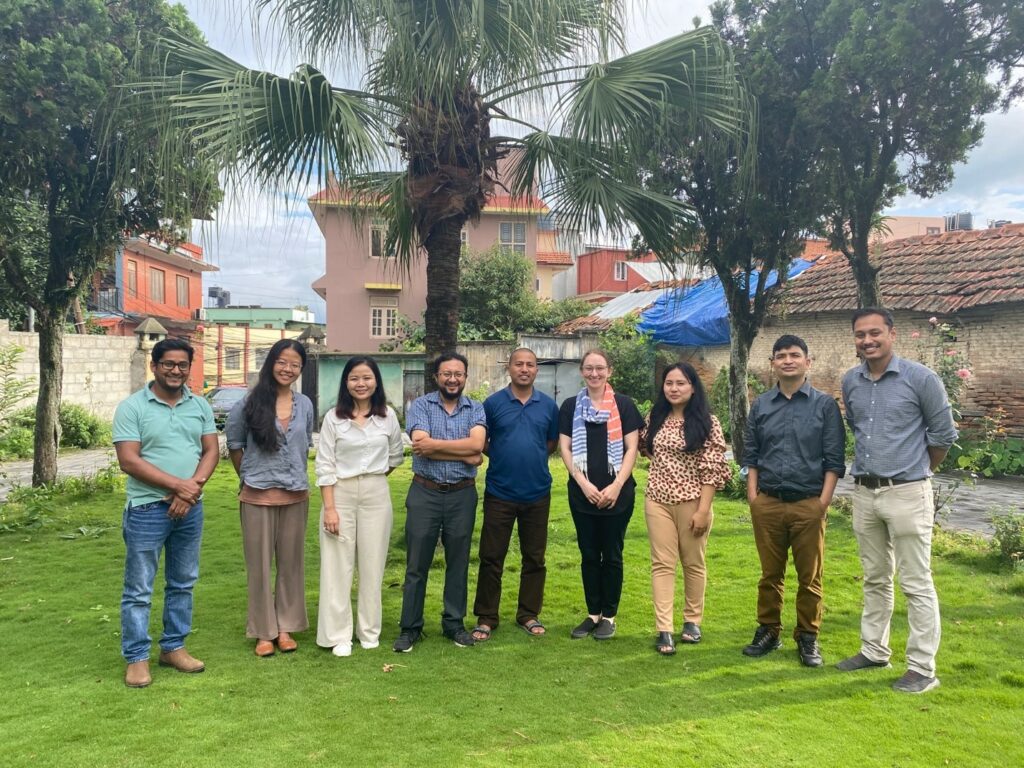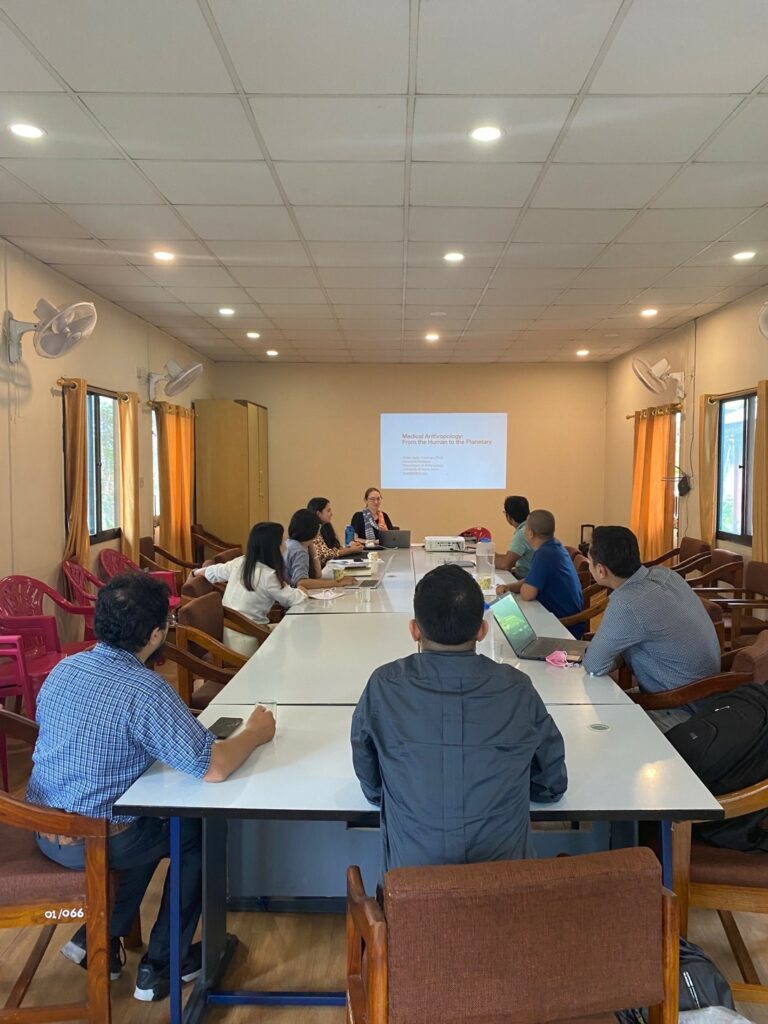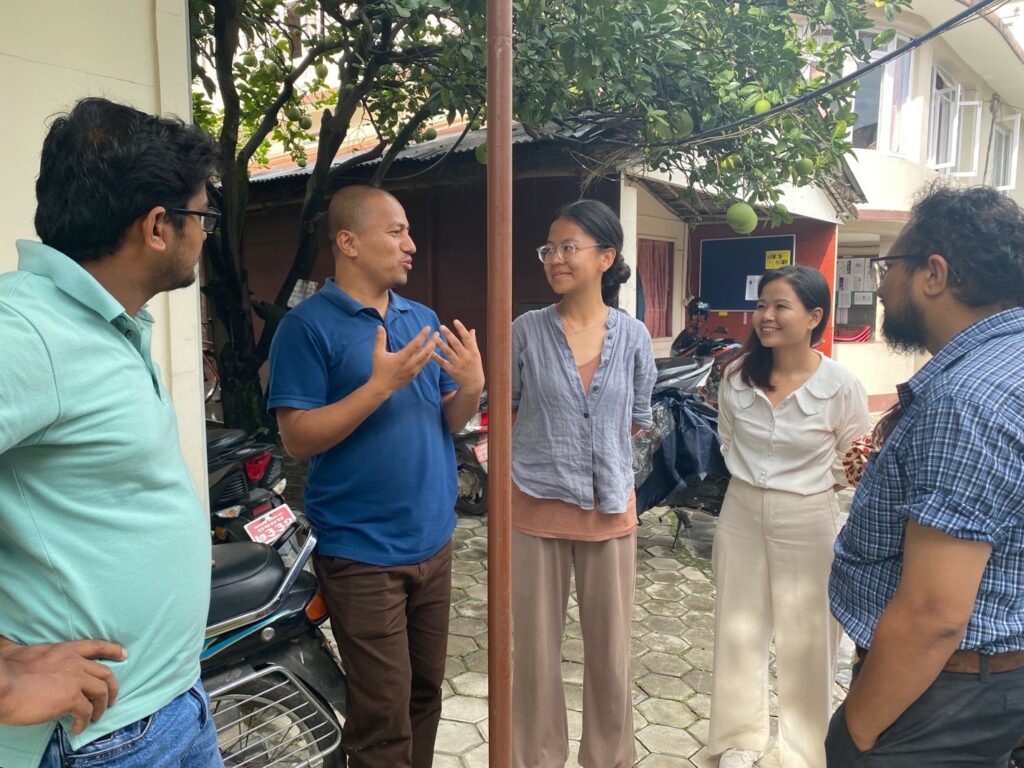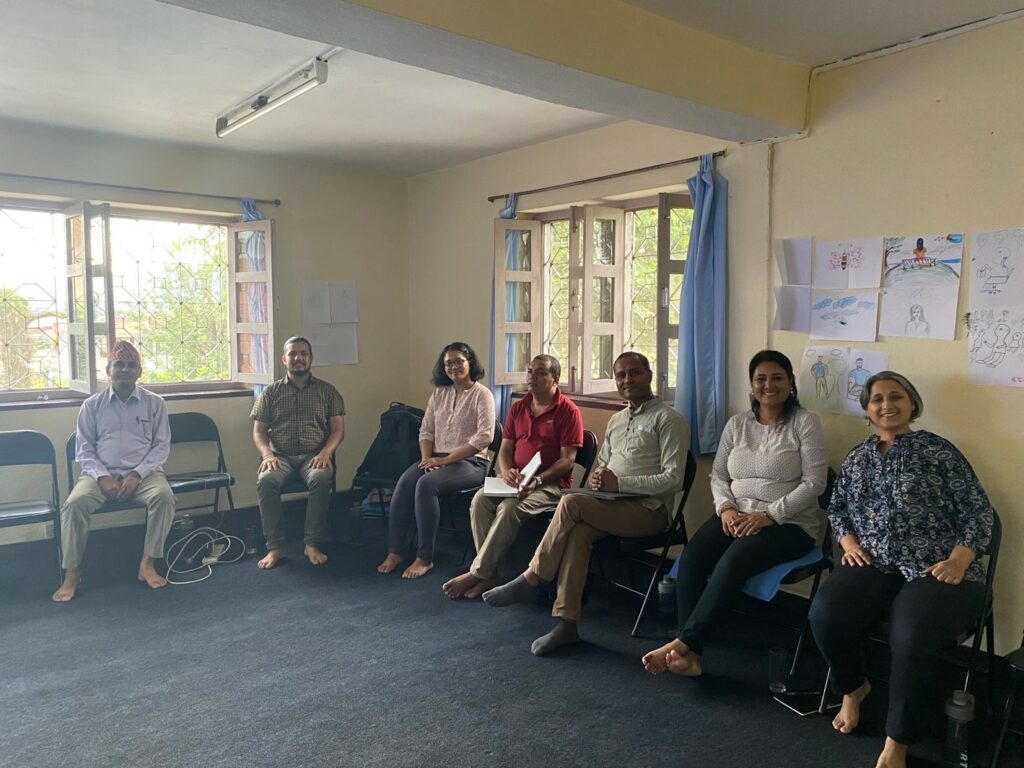Engaged Anthropology Grant: Aidan Seale-Feldman
With support from the Wenner-Gren Foundation’s Engaged Anthropology Grant, in July 2022 I was able to travel to Nepal after multiple years of postponement due to the Covid-19 pandemic. The aim of this trip was engagement with those who participated in and supported my research on mental health governance, as well as the broader scholarly community in Nepal. I proposed to organize a number of activities both in Kathmandu and an Eastern hill district, including a workshop on my book manuscript in-progress, a public talk, an open seminar, and a collaborative film.
Kathmandu’s vibrant anthropological community is supported by a number of institutions and non-profit institutes. Core among these is Tribhuvan University’s Central Department of Anthropology, as well as research institutes such as Social Science Baha, and Martin Chautari. This summer I partnered with Martin Chautari, a non-profit research institute focused on strengthening the foundations of the social sciences in Nepal. In Nepali, a chautara is a stone platform that serves as a resting and gathering place. Chautara are ubiquitous in the Himalayas, and these places for resting and gathering are found along Nepal’s many mountain trails as well as beneath the lush bar-pipal trees that are planted together at the center of villages and towns. As a place where Nepali and foreign researchers gather to share work on Nepal and South Asia, Martin Chautari serves a similar purpose.
This summer I had the opportunity to share my research in Martin Chautari’s Research Seminar Series, where I gave a talk titled “Psychic Intervention: The Crisis of Mental Health in Times of Disaster.” During my fieldwork in the Spring of 2015, Nepal was struck by a 7.8 magnitude earthquake and 7.3 magnitude aftershock. Over 9,000 people died and half a million lost their homes. In response to the seismic rupture, humanitarian psychosocial projects arrived with funding to mitigate an emergent “mental health crisis” in a country where mental health had not yet been incorporated into the health care system. While many organizations focused on providing short-term psychosocial interventions, some humanitarians, inspired by the World Health Organization’s “Building Back Better” framework, used the crisis as an opportunity to imagine what the future of Nepal’s mental health system could become. This talk drew on ethnographic and archival research to place the emergence of a new “mental health crisis” and calls to “build back better” in the context of a longer history of donor-driven mental health governance in Nepal and elsewhere. Instead of taking the crisis of mental health as an unquestioned point of departure, I discussed the ways in which crisis claims have been used to justify specific visions of mental health development in Nepal, and invited the audience to consider what other forms of care might be possible beyond biopolitical imaginaries.
At the heart of my engaged anthropology project was an intensive reading seminar titled “Medical Anthropology: From the Human to the Planetary,” which I offered at Martin Chautari. Over three weeks, the seminar met twice a week for 2.5 hours each session and brought together an interdisciplinary group of anthropologists, sociologists, and psychologists from Nepal, China, and the US. Many of the participants had extensive prior experience as professional field researchers and practicing clinicians.

Across six classes, we examined how the confluence of contemporary crises of climate change, a global pandemic, and ongoing structures of oppression demand new ways of conceptualizing illness and health. Topics included illness, embodiment, climate change, epidemics, human-animal relations, toxicity, and local biologies, as well as knowledge from “the archives of the world” that might inspire other ways of relating to human and more-than-human affliction.

The seminar at Martin Chautari was among the most inspiring educational exchanges I have experienced in my career. The classroom became a space for open dialogue not only about medical anthropology but also about anthropology in and of Nepal. Often our discussions spilled out into the break, where we sipped cups of strong tea outside and continued to debate ideas from the texts. In these less structured moments of study, conversations frequently turned to the complexities of positionality in anthropological research in Nepal.

In one of the most personally meaningful sessions, I taught my recently published work on epistemic diversity and the politics of translation. It was humbling and exciting to be in dialogue with both anthropologists and practicing clinical psychologists in Nepal about what it might mean to transform psychiatric theories by thinking from Nepali concepts of affliction.
In addition to the seminar, I also organized an interactive workshop with staff members at the Centre for Mental Health and Counselling–Nepal (CMC) to gather their feedback on my book manuscript-in-progress. During my fieldwork, I worked alongside CMC as an ethnographic consultant on a post-disaster mental health intervention. My current book project is based on the research I conducted as part of their team. Over the course of two days, I presented the core arguments and findings of each chapter and facilitated focus group discussions on selections of data.

It was validating to find that my depictions of CMC’s work both resonated with the experiences of staff members and inspired critical reflections on the role of NGOs for mental health and psychosocial counseling in Nepal. As one colleague shared, “We have been working for many years in the area of mental health and especially during critical situations like the earthquake. These discussions helped us see our work in a broader way, and to reflect on how we might design our projects in the future.”
The final portion of the project involved the creation of an ethnographic film on friendship in the rural village in the Eastern hills, where I had previously conducted research on a case of mass-hysteria among local teens. The week of my planned visit, a 6.0 magnitude earthquake struck the district. Thankfully, my friends were unharmed, however I had to cancel the trip due to the subsequent risk of landslides and difficulties of road access. Although I was unable to reach the village this time, I am already looking forward to the next visit to continue to find ways to engage, give back, and stand with the communities who have supported my work over the past decade.